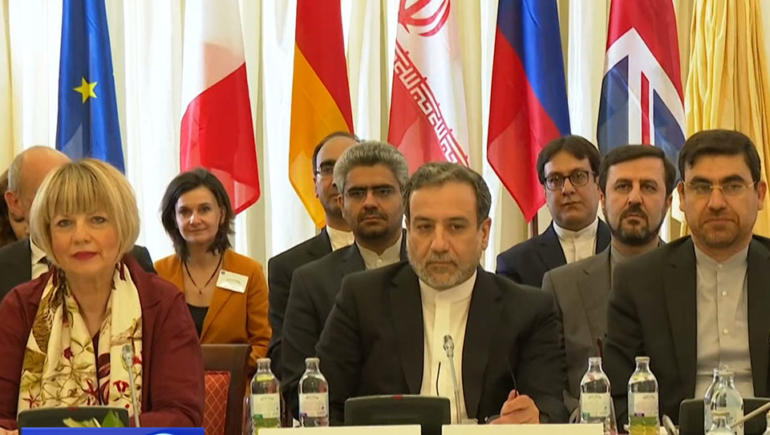Signatories to the Joint Comprehensive Plan of Action, otherwise known as the 2015 nuclear deal have met for crucial talks in the Austrian capitol, Vienna.
CGTN’s Natalie Carney reports.
The meeting comes amid renewed hostilities between Iran and the U.S., which could lead to a dismantling of the landmark deal.
Tehran has threatened to back out of its commitments after Washington imposed fresh economic restrictions on the already sanction hit country.
Iran said these talks are the “last chance,” to save the 2015 nuclear accord.
Time is critical, as Tehran threatens to withdraw from key accord commitments on July if no efforts are made to protect it from crippling new U.S. sanctions.
Iran has already announced a partial withdrawal from some aspects of the nuclear pact, citing the lack of commitment from other parties.
Following a meeting in Vienna with the remaining signatories, China reaffirmed its own commitment to the deal and to the modernization of Iran’s Arak heavy-water reactor despite its own trade disputes with the U.S.
“China is going full speed as respect to the Arak project. This has been appreciated not only by Iran but by other parties and I will say the international community as well,” said Fu Cong, Director General of the department of arms control of the Chinese Foreign Ministry.
Despite some progress said to have been made in these talks, Iran said, it’s still not enough to change its course.
“I believe it was positive and constructive meeting. I can say one step forward, compared to the previous meetings we had, but it is still not enough and it is still not meeting Iran’s expectations,” said Abbas Araghchi, Iran’s Deputy Foreign Minister.
Iran remained committed to the deal despite the U.S. withdrawal a year ago, but now Tehran said its patience is being tested.
Earlier this year, the U.K., France and Germany designed the Instrument in Support of Trade Exchanges or INSTEX, a special payment channel to skirt around U.S. sanctions by facilitating non-dollar trade with Iran.
But this too is being threatened by Washington. Iran’s economy is dominated by oil and gas production, which it exports all over the world; Yet in a new threat to the nuclear deal, the U.S. special envoy for Iran has said his country will sanction any country that imports Iranian oil with no exemptions.
Yet, China said it will continue to buy oil from Iran.
“China categorically rejects this zero policy by the U.S. and we will do everything we can to maintain our legitimate economic and trade relations with Iran and safe guard the legitimate interests of our companies,” Fu said on press conference.
There are also reports that Washington could sanction, the Special Trade and Finance Institute, the Iranian counterpart to Instex.
Meantime, China said it will work to try salvage the deal with group discussions on how to deal with the excess of Iran’s low-enriched uranium and further development of INSTEX for third-party use.
Barbara Slavin discusses latest developments in the Iran nuclear deal
CGTN’s John Terrett spoke with Director of the Future of Iran Initiative at the Atlantic Council, Barbara Slavin about the latest developments in the Iran nuclear deal and whether it can be salvaged.
 CGTN America
CGTN America
